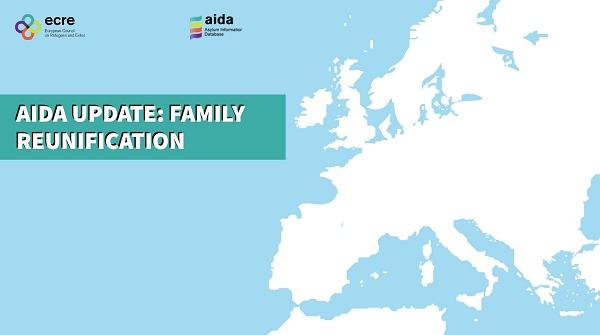Ahead of the Family Reunification Directive’s 20th anniversary, this new comparative report provides a comprehensive overview of the current implementation of the Directive and other forms of realisation of family unity for individuals in need of protection across 23 European countries based on ECRE’s Asylum information Database (AIDA). It focuses on both good practices and the worrying trends at the national level which threaten the effectiveness of the right to family reunification for beneficiaries of international protection.
Family reunification is a key component of the right to respect for family life for beneficiaries of international protection, and is essential to their integration into their host society. It also serves as a regular and safe pathway to protection for family members. The absence of realistic and timely procedures may leave families with no choice but to use irregular means of arrival to European countries. Nonetheless, EU law only provides for minimum standards, and policies in some countries are increasingly restrictive, notably following the events of 2015.
In this context, the report identifies a number of challenges across all stages of the procedure; it raises key questions as to the scope of family reunification; and sheds light on the obstacles posed by substantive and procedural requirements, as well as by insufficient procedural safeguards. The report also covers the continued difficulties families may face after arrival in the state of asylum, difficulties that can lead to renewed separation. Lastly, it provides a comparison with family reunification of asylum applicants under the Dublin Regulation, where difficulties also arise due to variable implementation of the family criteria.
On the other hand, the report also identifies multiple positive practices at the national level, which can serve as a model for others and for future legislative reform. Many countries go beyond the minimum imposed by EU law in a number of areas, thus ensuring better respect for the rights of beneficiaries of international protection and their families.
The report concludes that various improvements are needed to ensure the effectiveness of the right to family unity of persons in need of protection. Countries should establish a broader scope of application of family reunification and also ensure adequate support to sponsors and their families throughout the procedure. Without prejudice to the implementation of family reunification rights under the Directive, the possibility of establishing alternative and complementary pathways to ensure that the right to family life is supported, should also be considered.
For more information:
ECRE, Asylum Information Database (AIDA)
This article appeared in the ECRE Weekly Bulletin. You can subscribe to the Weekly Bulletin here.

